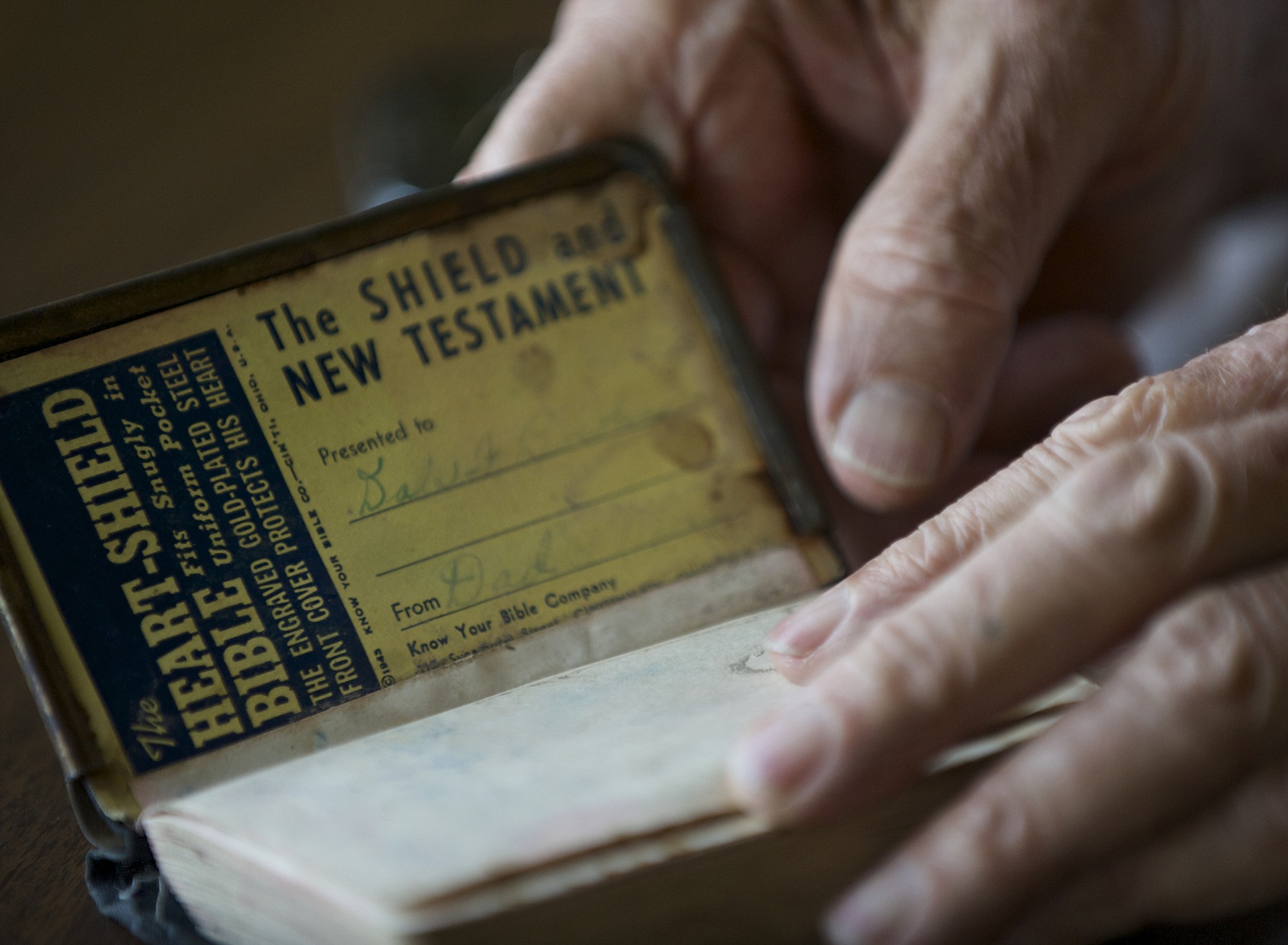What: POW/MIA Memorial Observance and Dedication.
When: 11 a.m. Saturday.
Where: Armed Forces Reserve Center, 15005 N.E. 65th St., Vancouver.
As Dale Bowlin hunkered down in a trench, trapped between American lines and advancing German infantry, he considered his options: Surrender or die.
He surrendered, and then Bowlin almost died anyway.
Bowlin became a prisoner of war on Feb. 21, 1945. Later that day, while in German custody, he was hit by artillery from his own unit and almost bled to death.
On Saturday, the 90-year-old Vancouver veteran will represent all American service personnel who were POWs or are still missing in action.
Bowlin will be among the speakers when the community’s POW/MIA Memorial is dedicated at the Armed Forces Reserve Center in east Vancouver.
The Community Military Appreciation Committee, a local nonprofit, put the project together. There also will be a ceremony at 11 a.m. Friday when the civic group turns the memorial over to the military.
“It’s been almost 70 years since this all happened, and to have folks remember and dedicate a monument is very rewarding,” Bowlin said.
He expects three other former POWs to attend the Saturday event, including World War II veterans Gene Liggett and Wade Minor.
Bowlin, Liggett and Minor were the last three members of the Fort Vancouver chapter of American Ex-Prisoners of War when it disbanded in December 2010.
Minor’s B-17 bomber was shot down on Oct. 7, 1944; Liggett, a forward artillery observer, was captured by the Germans in September 1944.
Bowlin says his time as a prisoner was not a typical POW experience. Most of Bowlin’s captivity was spent getting medical care, including the amputation that took his left leg above the knee.
Trapped in a ditch
Bowlin was with the 70th Infantry as the American offensive moved through France and into Germany. As a radio operator for the 883rd Field Artillery, Bowlin and three other men went a mile or so ahead of the unit’s 105 mm artillery.
After taking fire from the Germans, the four-man group found cover in a ditch. Their officer ordered Bowlin to tell the C Battery to fire high-explosive shells.
When German infantry supported by tanks got to within 20 yards of their position, Bowlin considered their next move. He had a carbine and the officer had a .45-caliber pistol. Opening fire, Bowling realized, “would have been suicide.”
“I had a knit cap under my helmet. I put it on the end of my carbine and waved it in the air and we surrendered.”
Their captors escorted the Americans back toward German lines.
“I heard a shell come in and dived into a ditch.”
A fragment from the 105 mm shell hit him in the leg; Bowlin realized that his pant leg was filling with blood. He tried to use his belt for a tourniquet, but the buckle broke.
“I saw a German bunker and started crawling as my blood was pumping out. Two soldiers came out as I lost consciousness,” Bowlin said.
“German soldiers I’d been firing artillery shells at a few minutes earlier left their bunker and saved my life.”
Bowlin woke up in a German field hospital. He spent a couple of months in German military hospitals — and for three of those days, he was unconscious.
“For years, I didn’t know about those three days.”
Bowlin and a couple of other wounded American prisoners were liberated in Donaueschingen when the French army arrived on April 23, 1945.
MIA for two months
Bowlin was listed as missing in action for about two months before he was able to send a telegram home to his family — and high-school sweetheart Phyllis — in Lebo, Kan.
Bowlin still has some keepsakes from his Army career, including a small New Testament with a metal cover his parents gave him. Dubbed a “Heart Shield Bible,” it was designed to fit into a soldier’s breast pocket.
Bowlin also has a small notebook filled with names and addresses. They’re fellow American POWs and their families back home. There also is the name of a German nurse who cared for Bowlin and two other wounded Americans. Bowlin had intended to write to the families of those POWs when he came back, but he didn’t.
“I was eager to get on with my life.”
He made a good start when he married Phyllis in November 1945; they were married for 63 years before her death five years ago. He got his engineering degree in 1948 at what was then Kansas State College.
Bowlin did eventually catch up with one of those former POWs. Bayard Walker, who grew up in Tillamook, Ore., saw something written online by Dale Bowlin.
“He said he was in a hospital and the guy in the next bed was named Dale. He wondered if I was that Dale.”
He was. When they got together, Bowlin said, Walker caught him up on those three missing days.




